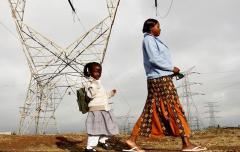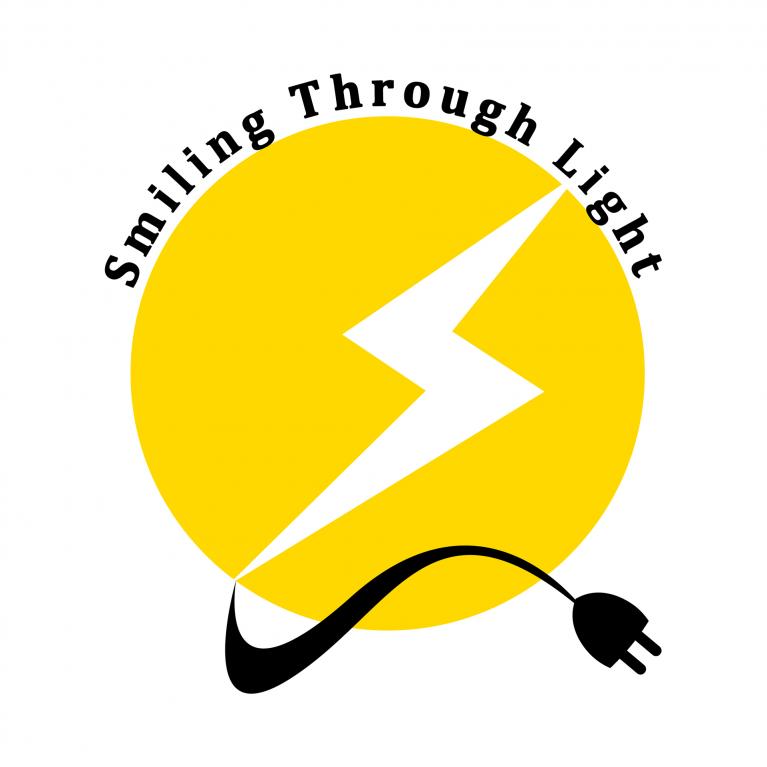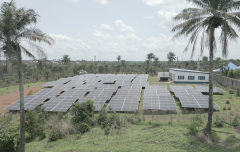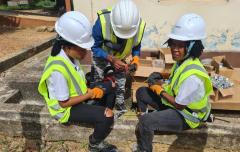Smiling Through Light delivering electricity access to Sierra Leone with women-focused business model
In 1992, Mariama Kamara fled civil war in Sierra Leone as a nine-year-old girl. Fast forward to today, and she is the Director and Founder of a business dedicated to bringing much-needed electricity access to the country’s citizens.
Smiling Through Light is a social enterprise that works with a network of women to provide clean, reliable and sustainable energy in Sierra Leone. With offices in Freetown, Lunsar, Tombo and Kamakwie, the company recruits local women and trains them to become solar technology entrepreneurs. These women sell solar-powered lamps within their communities, helping build vital electricity access in a country where access rates stand at 13 percent nationwide and 1 percent in rural communities.
Kamara traces the impetus for Smiling Through Light back to a trip she made to the country in 2011. While taking part on a project intended to build a sexual reproductive health curriculum, she witnessed a troubling trend.
“I saw that everyone was using kerosene lamps and candles in their homes and I knew this was a big threat to people’s well-being,” Kamara explains.
Kamara then enlisted the support of Comic Relief to conduct focus groups in Freetown with some of the women she had met through previous work with the aim of building a better understanding of people’s energy use.
“We asked them about the hazards of using kerosene lamps, and they told us how every week in their communities there would be two or three fires,” she says. “They had heard about solar lamps as an alternative to kerosene, but they had never actually seen them. So, I took this information with me back to London, and that’s when I decided to start a solar business.”
She then founded Smiling Through Light under three premises. First, she didn’t want to set up a charity since there were already examples of charities handing out solar lamps. Instead, she thought a private business would have even greater social impact by creating jobs but also reinvesting profits back into the communities.
The second premise was that once the company was up and running a percentage of profits would go towards funding a center where young people could go for mental health support, something she envisioned while she was studying psychology. And the last premise was that women had to play a central role in the business.
The element of female empowerment is a key focus for Kamara. She wanted to change the narrative of women simply being consumers of energy to one where they are leaders of the energy transition. Therefore, Smiling Through Light employs women or trains them to start their own business selling household solar products.
“Women are the best salespeople for household energy products because they understand the market, the transformative power of energy access and can convey that to other women, allowing the idea to spread through a community,” Kamara argues.
In terms of impact, the company has created 15 local jobs and has sold approximately 700 solar products in 2019 alone.
Huldah Imah-Paul works at the Smiling Through Light office in Freetown, and she explains that demand for the products is growing thanks to word-of-mouth. The company has been using storytelling as an effective way to engage with communities and key stakeholders, building their knowledge and awareness about the use of clean energy products.
Besides its sales, earlier this year Smiling Through Light launched a One Child One Lamp campaign, which fundraised to provide free lighting to approximately 400 school-going children in Kamayama, one of the areas that was hit hardest by the 2017 mudslides.
Huldah describes this campaign as exemplifying the power that even a little electricity access can have in changing people’s lives.
“Our monitoring and evaluation have shown that the students’ grades have improved since receiving the lamps,” Huldah reveals. “This means a lot to me because I’m studying to be a mechanical engineer and I can’t imagine studying without light. We’ve also heard that the students feel safer at night because of the lamps.”
Kamara’s goal is to expand on these successes by having a network of 300 to 500 women selling their solar products in Sierra Leone within the next five years. After that, she says the company could expand to Guinea and Liberia.
Of course, these expansion plans hinge on new funding, something that Kamara explains can be hard to secure.
“We can’t scale up without more finance,” she says. “Even getting to where we are today has required intense lobbying for funding. I think the total amount I’ve received to date has been around [GBP]40,000 and for that l had to put down 20 percent of my own money.”
Kamara says she has witnessed a risk aversion among investors when it comes to investing in entrepreneurs in Africa, especially young women. She argues there is a stigma that these companies don’t have correct processes in place, or their business models are faulty in some way.
“Companies like us offer a unique approach grounded in community-based impact,” she exclaims. “Look at how much our network has grown in the past six months. We’ve empowered hundreds of women who are helping thousands of others embrace renewable energy access.”
As a partner in the People-Centered Accelerator, Smiling Through Light is connecting with new partners and resources to support its fundraising efforts. Kamara says the Accelerator has equipped the company with valuable research used in its investor pitches and the networking has uncovered new financing channels for the company to pursue.
Photo credit: Smiling Through Light




